
 Flash News
Flash News
President of North Macedonia, Davkova: Creative diplomacy and Austrian support are the key to EU integration!
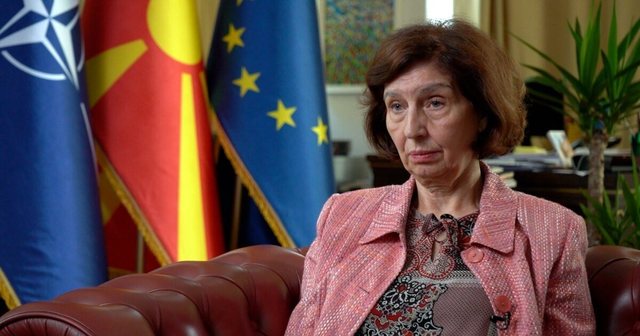
Austria is ready to discuss finding a creative solution with Bulgaria and believes that the implementation of the enlargement policy is currently the most important for the European Union, says the President of North Macedonia, Gordana Silanovska-Davkova, in an interview with the Macedonian Service of Radio Free Europe.
According to her, Austria's Minister for European and International Affairs, Beate Meinl-Reisinger, wants talks to resolve this dispute to be held in Vienna.
Radio Free Europe/Radio Liberty: Madam President, the president's powers are mainly in the field of foreign policy, defense and security. Currently, two issues are the most important: the blockage of European integration and the strategic partnership agreement with the United Kingdom, which amounts to 6 billion euros in investment loans. Are we closer or further from the start of EU accession negotiations than a year ago, given that the Bulgarian government has recalled that the inclusion of the Bulgarian minority in the Constitution is not Sofia's only condition for this process?
Siljanovska Davkova: I cannot give you a precise answer in one sentence. Why? Because if I say that we are closer or further away, that would not be correct. Closeness or distance are relative. Even if we start negotiations, this does not necessarily mean progress. New demands may be presented, or as we have seen so far, processes that make it impossible to reach an agreement on classes and chapters. What do I think about this period? I have noticed changes. Logically, as president, this is my role. Our precedent has made the EU rethink the integration process, because it is clear that this precedent will produce others.
The constitution can be changed, but I can't promise that it will happen soon. I am the proposer, but the deputies vote according to their convictions – they represent the citizens, not me.
The question I am asked most often is: "Will there be constitutional changes?"
My answer is: I cannot guarantee it. I am not an absolute monarch. Demands for constitutional changes from outside are contrary to the fundamental principles of the EU – they are contrary to the Treaty of Lisbon and the Charter of Fundamental Rights. They emphasize respect for the constitutional structures and the national and cultural identity of countries.
Radio Free Europe/Radio Liberty: You mentioned creative diplomacy as a way to overcome this impasse. From your cabinet statement after the meeting with Austrian Minister Beate Meinl-Reisinger, it was understood that you would like these talks to take place in Vienna. Are there any developments in this regard?
Siljanovska Davkova: Creative diplomacy is necessary. We are aware that the negotiating framework has been adopted and it is difficult to change it – however, the case of Serbia showed that there can be exceptions. If we have problems in the negotiation process, then the EU should also engage creatively to unblock it.
The European Parliament can adopt an act on our relations with Bulgaria. The Council can give guidelines, there can be an action plan for the joint Macedonian-Bulgarian historical Commission. It should be clear that the two protocols we signed do not mention constitutional changes – they were imposed later. We can sign another protocol, but it should not be used as a basis for a veto, but for discussion, as the Germans and the French did, or the Poles and the Germans. The approach should be interpretative and constructive.
Radio Free Europe: Is there any concrete initiative for a meeting?
Siljanovska Davkova: The Austrian minister assured us that Austria is always behind the region. They believe that EU enlargement is a priority. They have also understood the aspirations of Ukraine and Moldova, but have emphasized that the Western Balkans deserve more. They have expressed readiness to help find a creative solution with Bulgaria.
I cannot say for sure whether she has already contacted Sofia, but she has been on the same line as the President of the European Council. He assessed our proposal for a delayed solution as constructive, but emphasized the lack of understanding from the neighborhood. However, he expressed readiness to cooperate.
Radio Free Europe/Radio Liberty: The details of the strategic partnership agreement with Great Britain are vague. What is your political assessment?
Siljanovska Davkova: Competences for international agreements are divided. The President has priority, but the Constitution stipulates that if by law the competence belongs to the government, then it is the one that acts. This is the case with economic, educational and social issues. The strategic partnership agreement – which includes infrastructure, hospitals, dormitories – is in the field of government competence. I support any solution that brings development and well-being. Even EU member states, our traditional partners, face major economic challenges.
Radio Free Europe: Is this agreement an alternative to the status quo with the EU?
Siljanovska Davkova: No. I am not a fatalist and I do not often use the expression “we have no alternative”. But Macedonia is part of Europe – geographically, historically, culturally and politically. Even British officials understand that the dialogue with us takes place in the context of European integration. There is no alternative. However, everyone in the world is looking for resources for development, and we are also part of this effort. The largest British investments in the Western Balkans are with us.
Radio Free Europe/Radio Liberty: How do you assess the government's work over the past year? Do you have regular consultations with Prime Minister Mickoski?
Siljanovska Davkova: The government receives its legitimacy from the Parliament. The responsibility for assessing it lies with the Parliament. I can speak about foreign policy and security. We consult, I seek information, and everyone stays within their own competences. I do not interfere in the internal affairs of the government and I do not allow interference in my field.
Radio Free Europe: How many laws have you vetoed so far?
Siljanovska Davkova: So far I have only returned one law – which is unprecedented for a year. But I have had objections to some other solutions. I take the laws among the first and examine whether they have any problems. In some cases I have intervened, in some I have been explained. If any solution is not in accordance with the principles I represent, I will use the veto.
Radio Free Europe: How are your relations with the DUI? This party has accused you of bypassing mechanisms for protection from ethnic majoritarianism.
Siljanovska Davkova: I have had good relations with many DUI MPs, some of them are my friends. It is not true that I have overlooked ethnic representation – it is a constitutional category. My messages are always in accordance with the Constitution and the law.
The Constitutional Court is the one that should decide on these issues. We will be assessed by the EU not only for harmonization with the acquis, but also for the practical implementation of laws. The Venice Commission and GRECO will take care of this. In selecting the members of the commissions – for pardons, decorations, youth – I have always paid attention to fair representation and, above all, professionalism.
Radio Free Europe: Have you succeeded in being the president of all citizens, as you said at the beginning of your mandate?
Siljanovska Davkova: This is the most important role – despite the focus on foreign policy. The citizens gave me legitimacy through direct vote. My engagement is daily, through meetings with all categories of citizens, especially with the most vulnerable groups. According to polls, I enjoy the broad trust of citizens – of different ethnic, gender and social backgrounds. I make an effort, but my assessment alone is not enough. This can be verified with reliable methods./ REL
Latest news

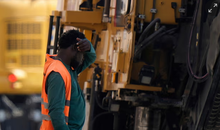
June temperature records, Italy limits outdoor work
2025-07-01 17:03:15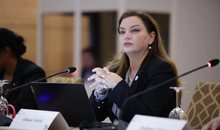

Meet Kozeta Miliku, named one of the top five scientists in Canada
2025-07-01 16:32:12
"Arsonist" arrested for repeatedly setting fires in Vlora (NAME)
2025-07-01 16:29:45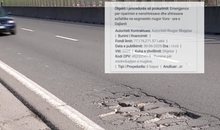

The ecological integrity of the Vjosa River risks remaining on paper
2025-07-01 16:09:40
Heat Headache/ Causes, Symptoms and Measures You Should Take
2025-07-01 16:01:13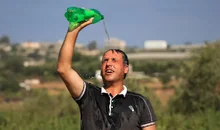
UN: The world must learn to live with heat waves
2025-07-01 15:54:50

Three cars collide in Tirana, one of them catches fire
2025-07-01 15:38:16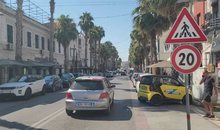
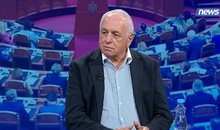
Shehu: Whoever doesn't want Berisha, doesn't want the opposition 'war'!
2025-07-01 15:19:20
Berisha requests the OSCE Assembly: Help my nation vote freely
2025-07-01 15:11:46
Be careful with medications: Some of them can harm your sex life
2025-07-01 15:00:32
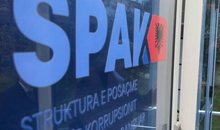
'Golden Bullet'/ Lawyers leave the courtroom, Altin Ndoc's trial postponed again
2025-07-01 14:44:52
EU changes leadership, Kosovo in a number of places
2025-07-01 14:40:01
Should we drink a lot of water? Experts are surprised: You risk hyponatremia
2025-07-01 14:30:20

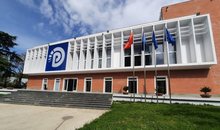

Lëpusha beyond Rama's postcards: A village that is being silently abandoned
2025-07-01 13:41:56
Scorching temperatures in France close the Eiffel Tower
2025-07-01 13:29:35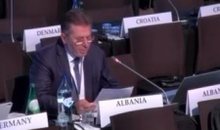
Media: China, Iran and North Korea, a threat to European security
2025-07-01 13:20:12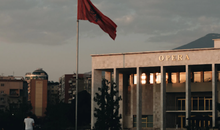
Albania drops in global index: Less calm, more insecure
2025-07-01 13:09:35
Road collapses, 5 villages in Martanesh risk being isolated
2025-07-01 13:03:04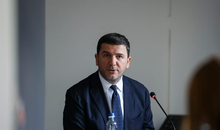
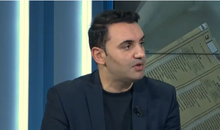
Këlliçi: Opposition action to be decided in September
2025-07-01 12:48:49
Four tips for coping with the heat wave
2025-07-01 12:38:53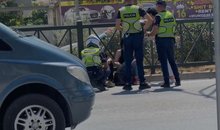
Car hits pedestrian on Transbalkan road
2025-07-01 12:27:09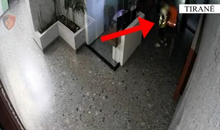
Authors of 9 robberies, Erjon Sopoti and Abdullah Zyberi arrested
2025-07-01 12:15:56
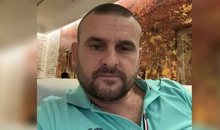
He abused his minor daughter, this is a 36-year-old man in custody in Fier
2025-07-01 11:50:34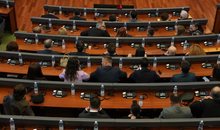
The constitution of the Kosovo Assembly fails for the 40th time
2025-07-01 11:40:08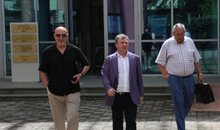



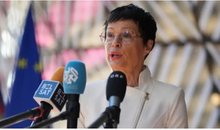
EU confirms support for the Western Balkans
2025-07-01 10:50:45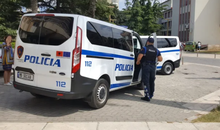
Serious in Fier! Father sexually abuses his minor daughter
2025-07-01 10:32:33
One year since the passing of the colossus of Albanian literature, Ismail Kadare
2025-07-01 10:25:26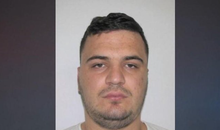

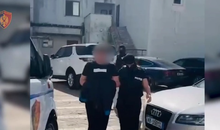
They supplied the 'spaçators' with drugs, two young men are arrested in Tirana
2025-07-01 09:54:09
Europe is "scorching", how dangerous are high temperatures?
2025-07-01 09:48:56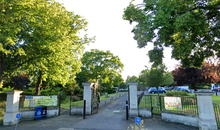

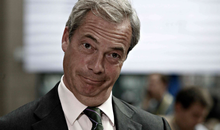
Nigel Farage in Albania: but why?
2025-07-01 09:13:12
Xama: The "Partizani" dossier is quite weak and without facts!
2025-07-01 09:04:47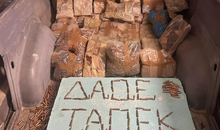

Foreign exchange, the rate at which foreign currencies are sold and bought
2025-07-01 08:35:39
Fabricators again warn of factory closures and job cuts
2025-07-01 08:21:30
Horoscope, what do the stars have in store for you today?
2025-07-01 08:08:59
Scorching hot, temperatures reaching 40°C
2025-07-01 07:57:12
Morning Post/ In 2 lines: What mattered yesterday in Albania
2025-07-01 07:42:59
Recount after May 11, Braho: I had no expectations for massive vote trafficking
2025-06-30 22:54:18

Second hearing on the protected areas law, Zhupa: Unconstitutional and dangerous
2025-06-30 22:18:46



Israel-Iran conflict, Bushati: Albanians should be concerned
2025-06-30 21:32:42

Fuga: Journalism in Albania today in severe crisis
2025-06-30 21:07:11
"There is no room for panic"/ Moore: Serbia does not dare to attack Kosovo!
2025-06-30 20:49:53

Temperatures above 40 degrees, France closes nuclear plants and schools
2025-06-30 20:28:42
Lavrov: NATO is risking self-destruction with new military budget
2025-06-30 20:13:54
Turkey against the "Bektashi state" in Albania: Give up this idea!
2025-06-30 20:03:24

Accused of sexual abuse, producer Diddy awaits court decision
2025-06-30 19:40:44



Kurti and Vučić "face off" tomorrow in Skopje
2025-06-30 18:44:12
Tourism: new season, old problems
2025-06-30 18:27:23


Construction worker dies after falling from scaffolding in Berat
2025-06-30 17:51:44




Almost free housing: East Germany against depopulation
2025-06-30 16:43:06

Hamas says nearly 60 people killed in Gaza as Trump calls for ceasefire
2025-06-30 16:14:15
Drownings on beaches/ Expert Softa: Negligence and incompetence by institutions!
2025-06-30 16:00:03


European ports are overloaded due to Trump tariffs
2025-06-30 15:30:44
The prosecution sends two Korça Municipality officials to trial
2025-06-30 15:19:54

Lezha/ Police impose 3165 administrative measures, handcuff 19 drivers
2025-06-30 14:55:04
Young people leave Albania in search of a more sustainable future
2025-06-30 14:47:52
Record-breaking summer, health threats and preventive measures
2025-06-30 14:36:19


Constitution of the Parliament, Osmani invites political leaders to a meeting
2025-06-30 14:07:54
